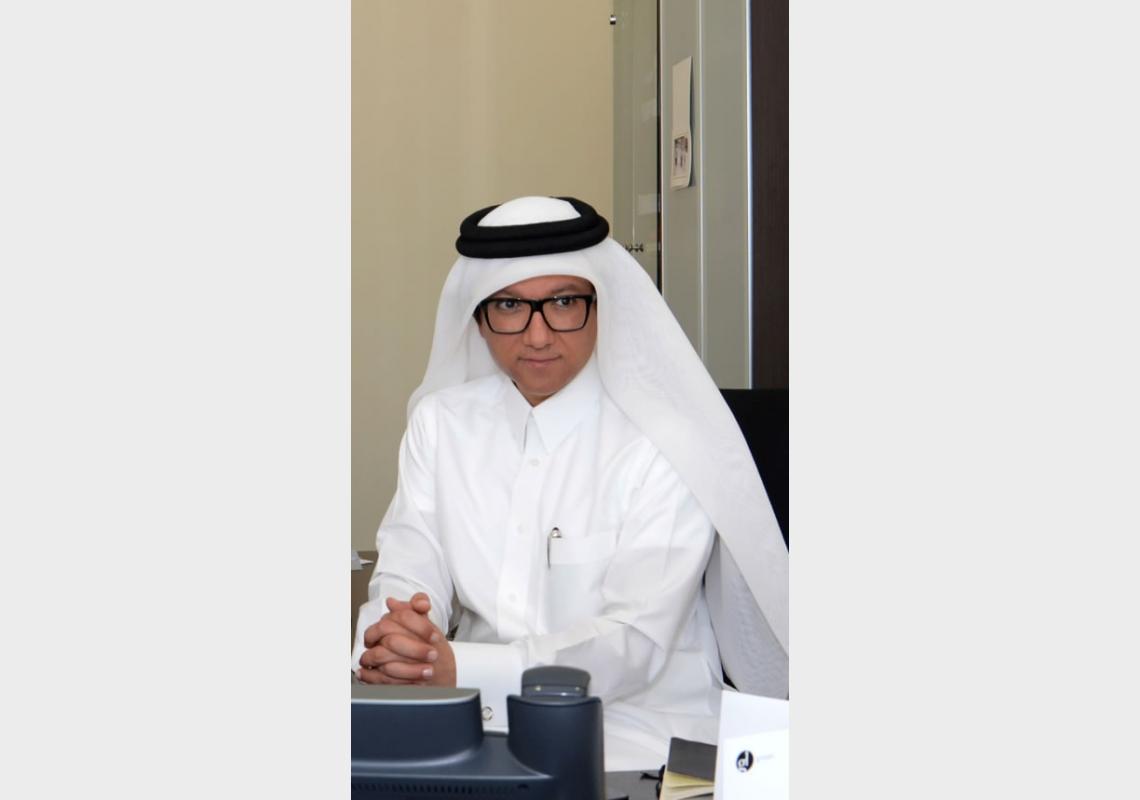Dr Talal Abdulla Al-Emadi.
The legal clinic comprises LAWC Oil and Gas Law Assistant Professor and IRL Editor-in-Chief Dr Talal Abdulla Al-Emadi, LAWC Undergraduate Teaching Assistant Ms Basheer AlAhbabi, Georgetown University in Qatar Fellow Dr Fadi Makki, and Assistant Undersecretary for Environmental Affairs at the Ministry of Municipality and Environment and Chair of the National Committee and Team for Climate Change Engineer Ahmad Al-Sada. They are studying the trade-related response measures included in the Intended Nationally Determined Contributions (INDCs) and the Nationally Determined Contributions (NDCs) and the way these measures are designed, as well as their implications on the economic diversification of the states adopting them. They are also assessing the role of free trade agreements in the mitigation of climate change.
The Paris Agreement, which entered into force last November, under the umbrella of United Nations Framework Convention on Climate Change (UNFCCC) builds upon the Convention and – for the first time – brings all nations into a common cause to undertake ambitious efforts to combat climate change and adapt to its effects, with enhanced support to assist developing countries to do so. As such, it charts a new course in the global climate effort. The Paris Agreement’s central aim is to strengthen the global response to the threat of climate change by keeping a global temperature rise this century well below 2OC above pre-industrial levels and to pursue efforts to limit the temperature increase even further to 1.5OC. Additionally, the agreement aims to strengthen the ability of countries to deal with the impacts of climate change.
The Paris Agreement requires all parties to put forward their best efforts through NDCs and to strengthen these efforts in the years ahead. This includes requirements that all parties report regularly on their emissions and on their implementation efforts. Qatar is a party to the Paris Agreement and has already started the process of ratifying it.
Dr Talal Abdulla Al-Emadi said: “The State of Qatar puts environmental issues at the top of its priorities, in line with its ongoing efforts towards sustainable development. The Paris Agreement contributes to set new goals and to implement them through the use of renewable energy. As the largest university in Qatar, QU places the environment at the core of its academic programs and research centers. The University is also committed to providing high-quality legal research outcomes that are of the benefit of the society, and efficient applicable solutions to issues that are of national importance such as climate change and the preservation of the environment, in line with the Environmental Development pillar of Qatar National Vision 2030.”
ENDS
Notes to Editors:
Media enquiries to Murielle El Hajj Nahas, +974 4403 5790; [email protected]
About Qatar University:
Qatar University is one of the leading institutions of academic and research excellence in the GCC region. It provides high quality undergraduate and graduate programs that prepare competent graduates, primed to shape the future of Qatar. The organization's strong relationship with Qatari society is reflected in its community service efforts and in its vibrant research portfolio that addresses relevant local and regional challenges, advances national goals towards a knowledge-based economy, and contributes actively to the needs and aspirations of the society.



